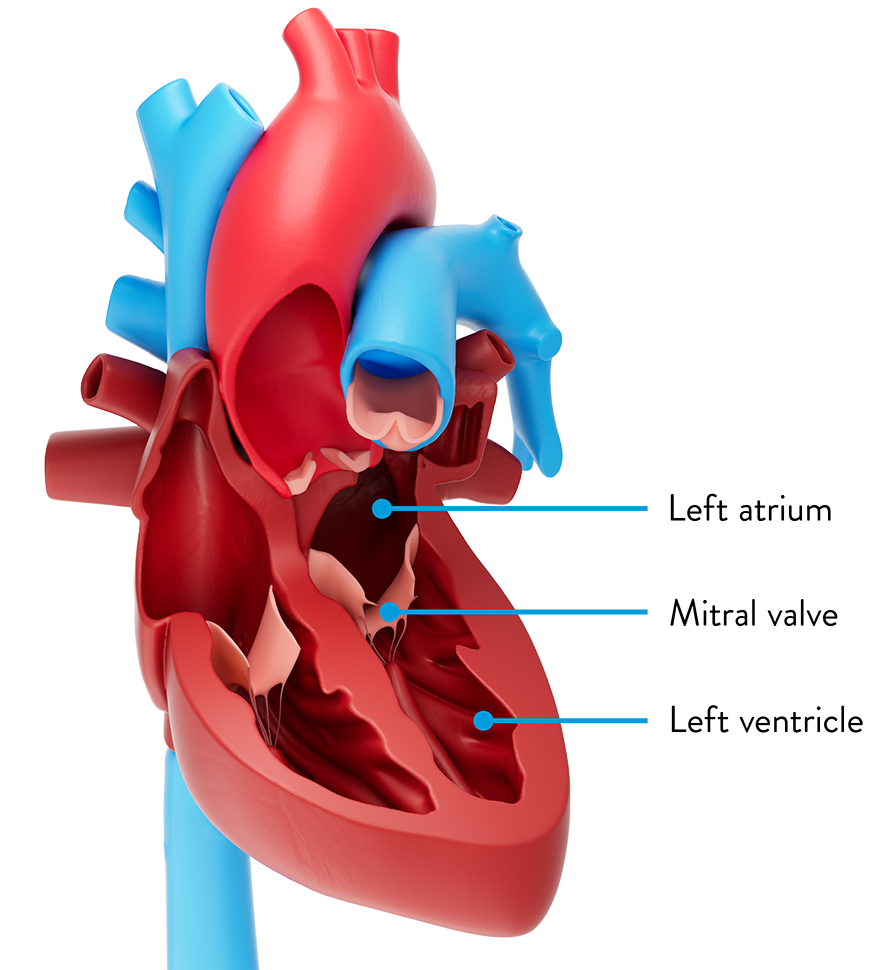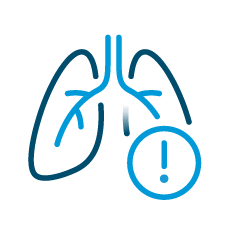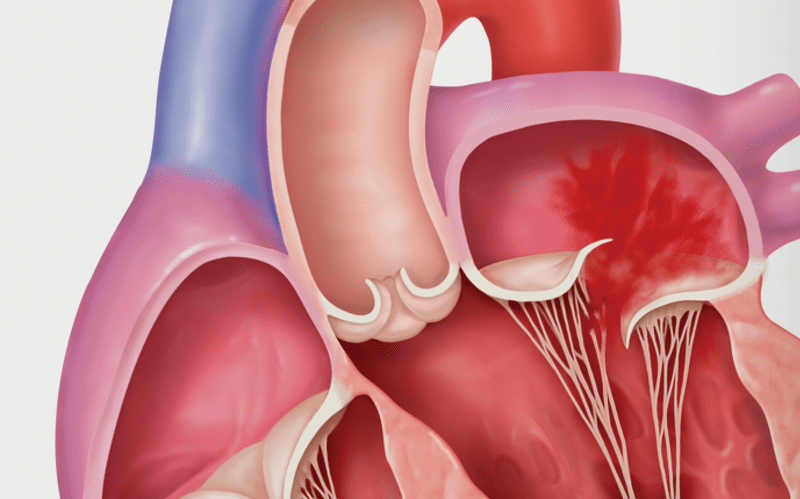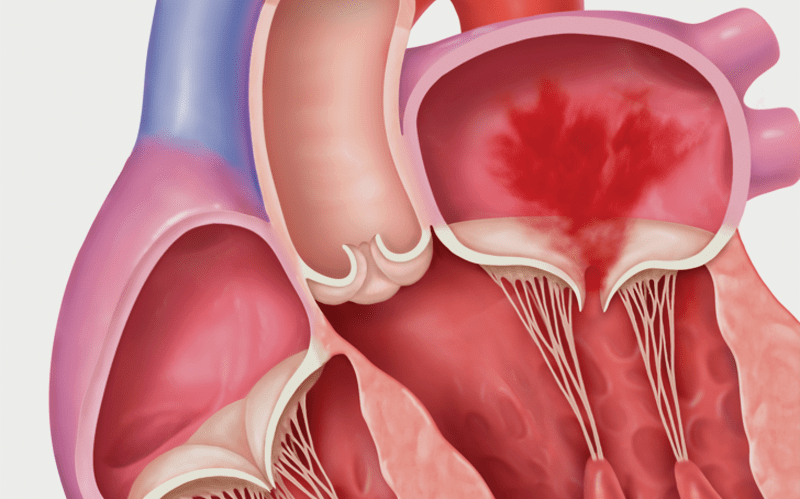HEART VALVE DISEASE
How Does MR
Affect Heart Function?
Mitral regurgitation places an extra burden on your heart and lungs, and your heart may have to work harder to function normally. The mitral valve is a heart valve that lies between the left atrium and left ventricle.
The valve opens and closes to ensure that blood flows in only one (forward) direction. In mitral regurgitation, the valve does not close completely and blood leaks backward (regurgitates) into the left atrium during contraction.1 The more open the valve remains, the more blood regurgitates and the more severe the problem.

Mitral Regurgitation
Symptoms
Feeling tired/fatigue is a common symptom of mitral regurgitation.1 In some cases, you may have mitral regurgitation but not experience any signs or symptoms. In other cases, you may experience mitral regurgitation symptoms such as1:

Fatigue

Heart Palpitations

Dry, hacking cough

Shortness of Breath

Fainting

Swollen feet or ankles

Inability to Exercise

Decrease in Appetite

Excessive Urination
If you are experiencing any of the symptoms of mitral regurgitation, talk to your doctor to receive a thorough examination and proper diagnosis. You should also promptly seek treatment if you notice that your symptoms are getting worse—for example, if the swelling in your feet and ankles has increased or if you find it more difficult to perform daily activities such as walking up the stairs.
There Are 2 Types Of
Mitral Regurgitation (MR)

Primary MR
A faulty valve does not close properly or completely, allowing blood to flow backward into the left atrium.

Secondary MR
Abnormalities in the left ventricle distort and pull the leaflets apart.
One type of mitral regurgitation is called primary mitral regurgitation (also called degenerative). It is caused by an abnormality in the mitral valve itself. Primary MR can be related to age, a valve abnormality present from birth, heart disease, coronary artery disease, or a history of rheumatic fever.
The other type is called secondary mitral regurgitation (or functional mitral regurgitation). It is caused by heart disease that leads to an enlarged left ventricle, which prevents the valve from closing properly. This enlarging of the ventricle is most common in heart failure patients.
What Can Happen
If Mitral Regurgitation Is Not Treated?
Mitral regurgitation places an extra burden on your heart and lungs. Over time, some people may develop an enlarged heart because it has to work harder to pump blood through the body. If it is not treated, mitral regurgitation can cause other, more serious problems with your heart, such as heart failure. This is a condition that occurs when your heart can’t pump enough blood to meet the needs of your body.1
If left untreated, up to 57% of people with a leaky valve may not survive 1 year.2
Mitral Regurgitation Treatment
If you or a loved one has been diagnosed with mitral regurgitation, it’s important to seek timely treatment since the condition gets worse over time.
Discuss all treatment options with your doctor
Your doctor can describe the risks and benefits and help you decide which option is right for you.
